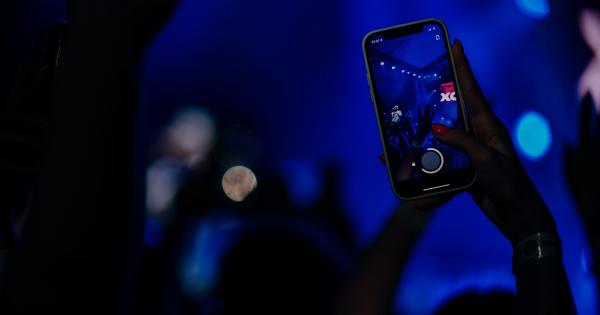Nightlife syndrome, also known as nocturnal lifestyle disorder, refers to a condition in which individuals indulge in excessive partying and late-night activities, often leading to various physical and mental health issues.
In recent years, numerous celebrities have openly discussed their experiences with nightlife syndrome, shedding light on the detrimental effects it can have on one’s well-being. One such celebrity who has shared his journey with this syndrome is the renowned British singer, Robbie Williams.
Early Success and Party Culture
Raised in a working-class family, Robbie Williams skyrocketed to fame in the 1990s as a member of the popular boy band, Take That.
The immense success at a young age exposed him to a whirlwind of opportunities and temptations, including the glamorous world of nightlife. Williams soon found himself immersed in a party culture, where late nights, alcohol, and drugs became the norm.
The Highs and Lows of Excessive Partying
The initial allure of endless parties and vibrant nightlife offered temporary escape from the pressures of fame and a way to connect with like-minded individuals. However, as Williams’ fame grew, so did the intensity of his late-night escapades.
The excessive partying began taking its toll on his mental and physical well-being.
Mental Health Struggles
As the years passed, Williams’ indulgence in nightlife and the accompanying vices fueled a downward spiral in his mental health. He battled with depression, anxiety, and addiction, often using the party scene as a coping mechanism.
The constant need to escape reality only worsened his emotional well-being, ultimately affecting his personal and professional relationships.
Isolation and Loneliness
Despite being constantly surrounded by people in the bustling nightlife scene, Williams often found himself feeling isolated and lonely. The superficial nature of many social interactions left him craving genuine connections and meaning in his life.
The cycle of partying, highs, and subsequent lows exacerbated his sense of isolation and contributed to feelings of emptiness.
Introspection and Seeking Help
After years of battling his inner demons, Robbie Williams reached a pivotal point in his life where he recognized the need for change.
Through therapy, introspection, and self-reflection, he embarked on a journey to regain control over his life and break free from the grasp of nightlife syndrome.
Embracing Sobriety: A New Lease on Life
One of the most significant steps Williams took towards overcoming nightlife syndrome was embracing sobriety. By eliminating alcohol and drugs from his life, he was able to regain clarity and focus.
Sobriety allowed him to rebuild his relationships, prioritize his mental well-being, and find joy in simple pleasures that were once overshadowed by late-night excess.
An Advocate for Mental Health
Having experienced the devastating effects of nightlife syndrome firsthand, Robbie Williams transformed his pain into a platform for advocating mental health awareness.
Through interviews, documentaries, and his music, he shares his struggles and encourages others battling similar issues to seek help and prioritize their well-being.
Lessons Learned
Robbie Williams’ journey with nightlife syndrome offers valuable lessons for both celebrities and individuals from all walks of life:.
- Moderation is key: While enjoying the nightlife can be a form of recreation, moderation helps prevent its detrimental consequences.
- Mental health matters: Prioritizing mental well-being is crucial in combating the negative effects of excessive partying and establishing a balanced lifestyle.
- Authentic connections: Focusing on quality relationships that provide genuine support and companionship can help combat feelings of isolation.
- Professional help: Seeking therapy or counseling can be immensely beneficial in overcoming the challenges associated with nightlife syndrome.
Conclusion
Nightlife syndrome remains a prevalent issue in today’s society, affecting numerous individuals, including celebrities like Robbie Williams.
His story serves as a reminder of the dangers of excessive partying and the importance of addressing mental health concerns. By sharing his experiences and advocating for change, Williams has become a source of inspiration for those seeking to break free from the grips of nightlife syndrome.






























